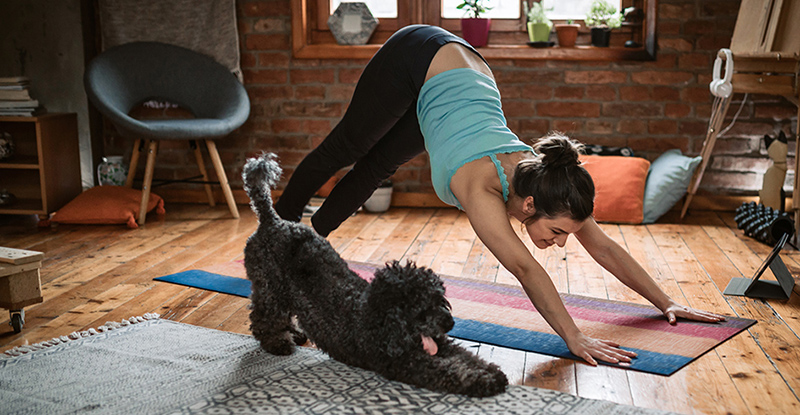
As we navigate our way through these unprecedented times, it’s important to take care of our mental health while maintaining our physical health and safety. The disruption and uncertainty that COVID-19 has caused is challenging on many levels, and a healthy mindset is crucial to overcoming these challenges.
In particular, anxiety is a common issue that we should all be mindful of. Getting groceries is no longer a simple task. We have to contend with lineups outside grocery stores to maintain physical distancing, and there’s often a sense of general uneasiness felt throughout the whole shopping process. If you’re an essential service worker, the stress of caring for others as well as you and your loved ones can be overwhelming. And for people staying at home, it’s understandable to feel rising anxiety from isolation or loneliness and uncertainty of the future.
However, there are tools we can use to stay positive and get through COVID-19. Here are five ways we can all manage anxiety and care for our mental health and wellness.
- Practice meditation and mental health exercises
Our mental wellbeing directly affects our physical health, so it’s important to try to keep ourselves in a calm, positive state of mind. Taking a few moments each day to meditate and practice some simple mental health exercises can help you calm your mind and recharge your energy. This is critical, because negative feelings of anxiety, stress, and loneliness can give us mental fatigue.
Some good online resources are Headspace and Calm, which provide guided meditations and mental health exercises. One great thing about these practices is that they can be done regularly or whenever you feel moments of anxiousness.
- Stay connected
While we continue to practice physical distancing, remember that we don’t have to be socially isolated. Our current technology allows us to stay connected with co-workers, family, and friends. For example, Zoom is a popular tool that businesses use to host videoconferences, and is also great for family and social chats as well.
While accessible on various devices, Zoom is best used on a laptop, as the widescreen provides better viewing capabilities, and you can easily take your laptop with you should you wish to move around. It also saves you the trouble of having to hold onto a mobile device. Other videoconferencing options include Skype and Houseparty, the latter being more suited for social purposes.
For quick, spur-of-the-moment chats, FaceTime and WhatsApp video chats can also do the trick.
Virtual social activities and gatherings are trending like never before, including virtual happy hours, book club meetings, fitness training, theme parties, and just about everything. If you haven’t already, try one to join in on the fun.
- Keep active
Being physically active not only benefits your body, but also releases endorphins which can improve your mood and help you respond positively to stress.
Simple activities such as going for a walk or jog alone outside (when safe to do so) can be good for both your physical and mental health. Just remember to practise physical distancing if you choose to go outside. Taking a few moments each day to enjoy the air and sunlight at a safe distant from others can make a big difference to your overall wellbeing, including improving your mood and reducing stress.
You can also stay indoors and do a fitness class online. There many different types of classes available, many of which are free at the moment. Apartment Therapy offers a list of free virtual workout providers of activities such as boxing, yoga, Pilates, boot camp, dance and much more. If you are a member at a fitness studio, keep in mind that some of them may also be offering online options.
Related articles
- Keep your mind active
Just as it’s important to keep your physical body engaged, we also need to keep our minds active. Whether it’s doing puzzles, playing board games, or catching up on reading, these activities are more accessible than ever before. For example, if reading is your thing, many libraries are currently offering free downloadable books.
This also might be a great opportunity to learn something new, such as picking up a new language. Duolingo offers free online language training through its website and app.
- Schedule your time
Some of us may be managing more than we’re used to in our daily lives – perhaps you might be helping your children with their online studies, in addition to working full-time – while some of us may have far less to do than usual.
Whatever the case may be, it’s important to create a regular routine and stick to it as much as possible. This includes waking up, going to bed, working, and having meals at the same time every day. By creating structure to our daily lives, we can manage our time, reduce stress, and make us feel less like we’re in limbo while we’re at home. This will also help us to shut off from work mode every day by creating boundaries.
While COVID-19 has disrupted our lives, we can do our part in containing the disease and keeping ourselves mentally healthy at the same time. Let’s stay healthy and strong together.
Additional mental health resources
Vince Kanasoot is a communications specialist with the Chartered Professional Accountants of British Columbia.



